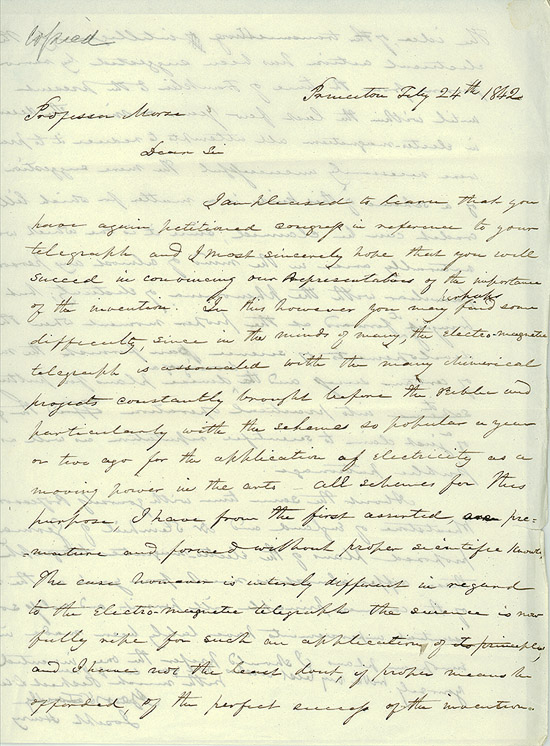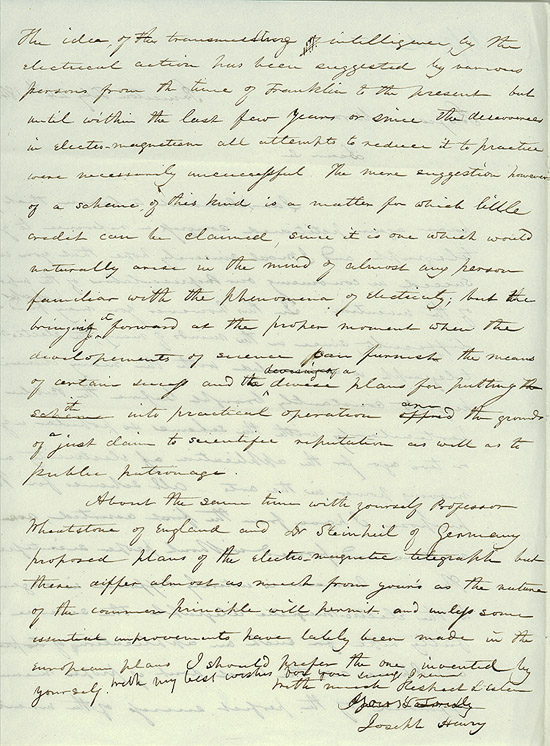|
Professor Morse
Dear Sir
I am pleased to learn that you have again petitioned congress in
reference
to your telegraph
and I most sincerely hope that you will succed in convincing our
Representatives
of the
importance of the invention. In this however you may perhaps find some
difficulty, since in the minds
of many, the electro-magnetic telegraph is associated with the
many
chimerical projects
constantly brought before the Public30 and particularly with the
schemes
so popular a year or
two ago for the application of electricity as a moving power in the
arts.
All schemes for this purpose,
I have from the first asserted, are premature and formed
without
proper scientific
knowledge.31 The case however is entirely different in regard to the
electro-magnetic telegraph
the science is now fully ripe for such an application <of
its principles>, and I have
not the least dout, if proper means be afforded, of the perfect success
of the invention.32 The idea,
of <the transmission of> transmitting intelligence,33 by
the electrical
action has been
suggested by various persons from the time of Franklin to the present
but
until within the last
few years or since the discoveries34 in electro-magnetism all attempts
to reduce it to practice
were
necessarily unsuccessful. The mere suggestion however, of a
scheme,
of this kind is a matter
for which little credit can be claimed, since it is one which
would
naturally arise in the mind
of almost any person familiar with the phenomena of electricity;
but
the bringing it forward
at the proper moment when the developments of science can
furnish
the means of
certain sucess and <the> to <devising of a>
devise plans
for putting
<the scheme> it into practical operation <offred> are the
grounds of a just claim to
scientific
reputation as well as
to public patronage.
About the same time with yourself Professor Wheatstone of England and
Dr
Steinheil of
Germany proposed plans of the electro-magnetic telegraph but these
differ
almost as much
from your's as the nature of the common principle will permit and
unless
some essential
improvements have lately been made in the European plans I should
prefer
the one invented by
yourself.35 With my best wishes for your success I remain
With much Respect & Esteem36
<I am as ever>Yours Truly
Joseph Henry
| |
|
Draft, Henry Papers, Smithsonian
Archives. Published in
Nathan Reingold
et al., eds. The Papers
of Joseph Henry, vol. 5, January 1841-December 1843: The
Princeton
Years
(Washington, 1985), pp. 150-151. |
|



